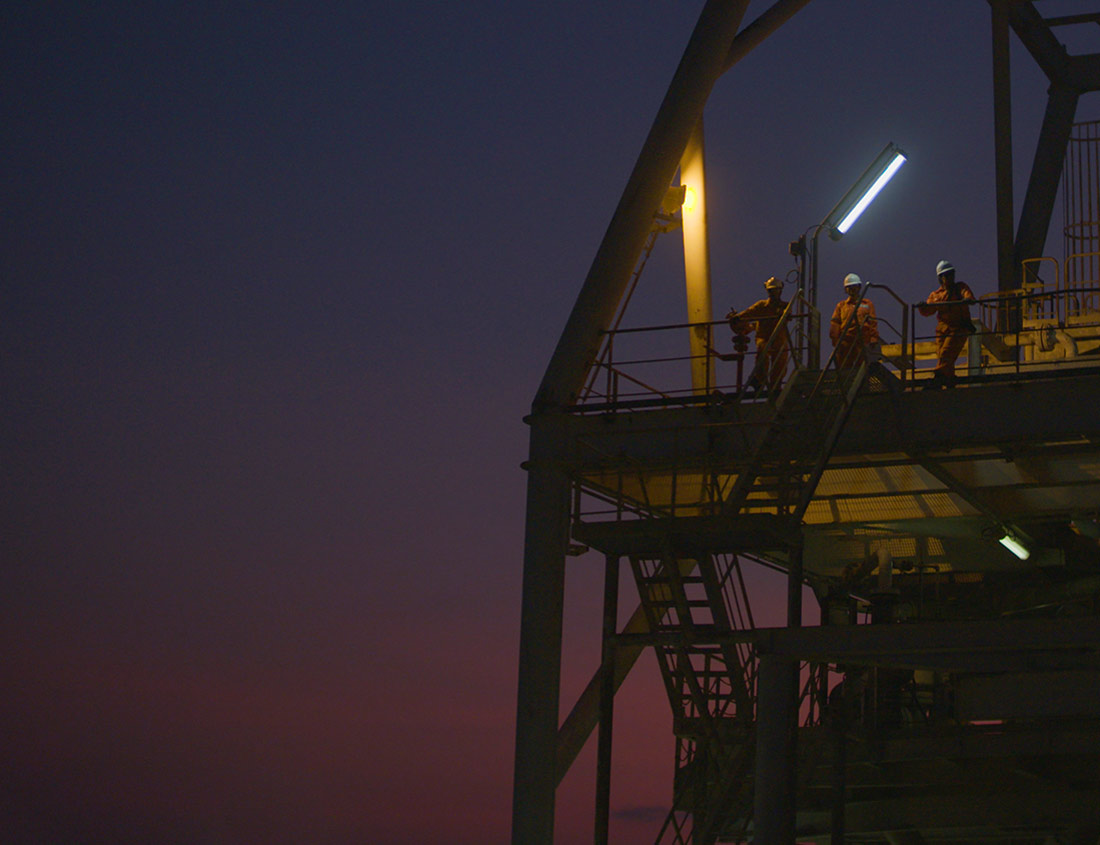Mubadala Petroleum
Overview
In 2018, as part of the Mubadala Cinematic Portrait project we were commissioned to make a series of films about the Mubadala Petroleum operation in the Gulf of Thailand, focusing specifically on their Jasmine Oil Field.
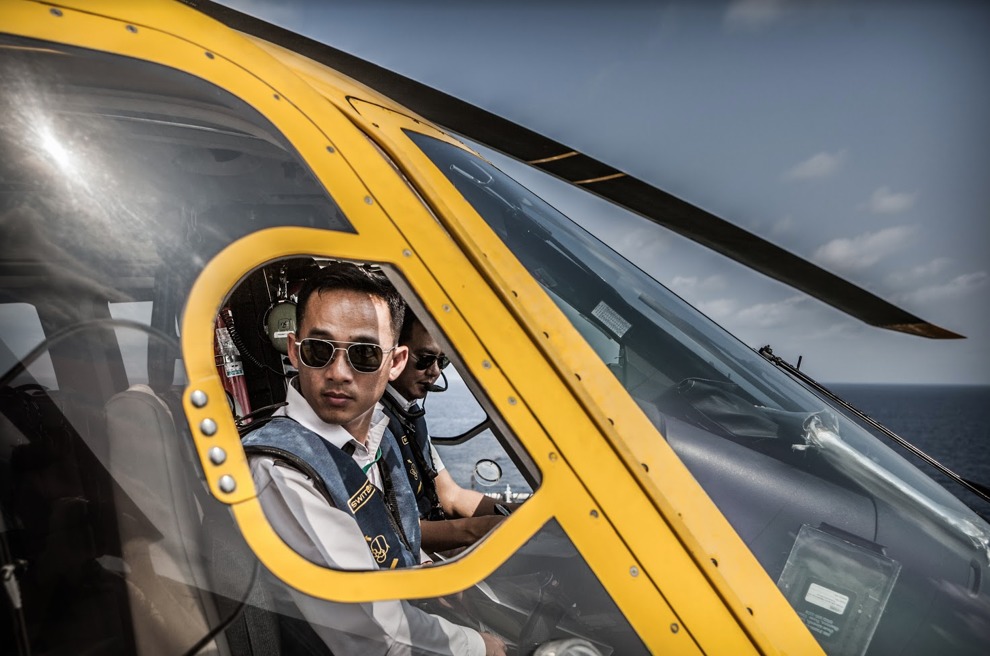
Project Brief
The video brief, to explore the ethos of the company through individuals on the ground. Short, emotional stories, pitched at consumers, which resonate with the viewer and in turn reflect on the company as a whole.
In addition to the three films we needed to assemble a portfolio of photography documenting the operation as a snapshot in time, showing the hard work and skill of MP employees operating in a remote and dangerous environment; the scale of the operation, and to showcase the company’s corporate and social responsibility efforts. And finally we’d need general aerial photography and video of the Oil Field from a helicopter.
Over 12 days we completed three short films and shot thousands of still images covering every aspect of the operation.
Material Delivered
- 3 x 2 min corporate documentary
- Additional interviews with key employees for use in future content
- General cinematic footage to be used in future company communications
- Professional photography documenting the company’s operations
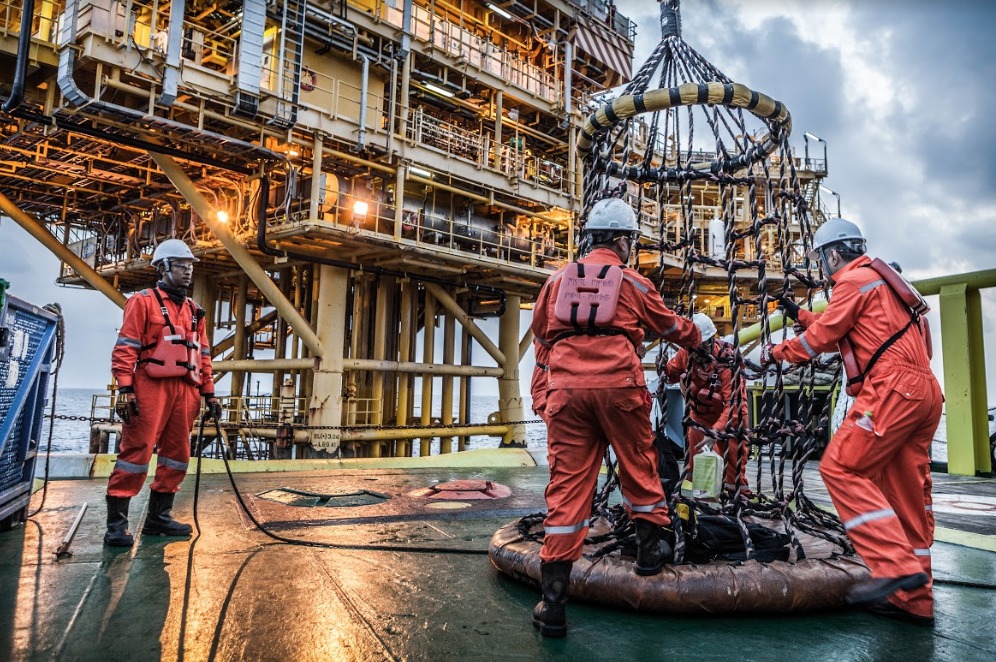
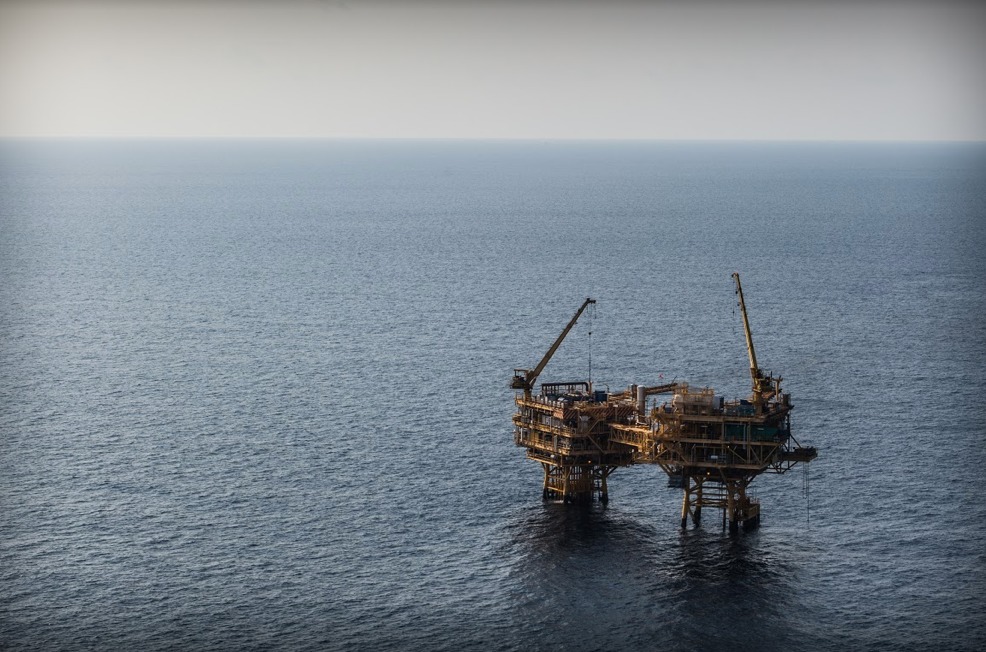
Our Story
In terms of oil and gas exploration the Gulf of Thailand (GoT) is unique in that it has many small pockets of hydrocarbons as opposed to large reservoirs. This means that the drilling in the Gulf of Thailand is the fastest in the world and each field requires many more wells to be drilled than normal. Our extensive research in the pre-production phase led us to focus on two areas of the MP operation:
The geoscientists who locate the oil are very skilled experts in their field. We found MP employee Rattana who heads up a team of geoscientists based in Bangkok. In the early days of Jasmine she single handedly extended the field life by locating more and more oil. Thanks to Rattana (and now her team) the expected yield went from 7 million barrels to recently passing 70 million, and Jasmine is now expected to produce close to 90 million barrels by 2024. Our story followed Rattana as she visited the field for the first time.
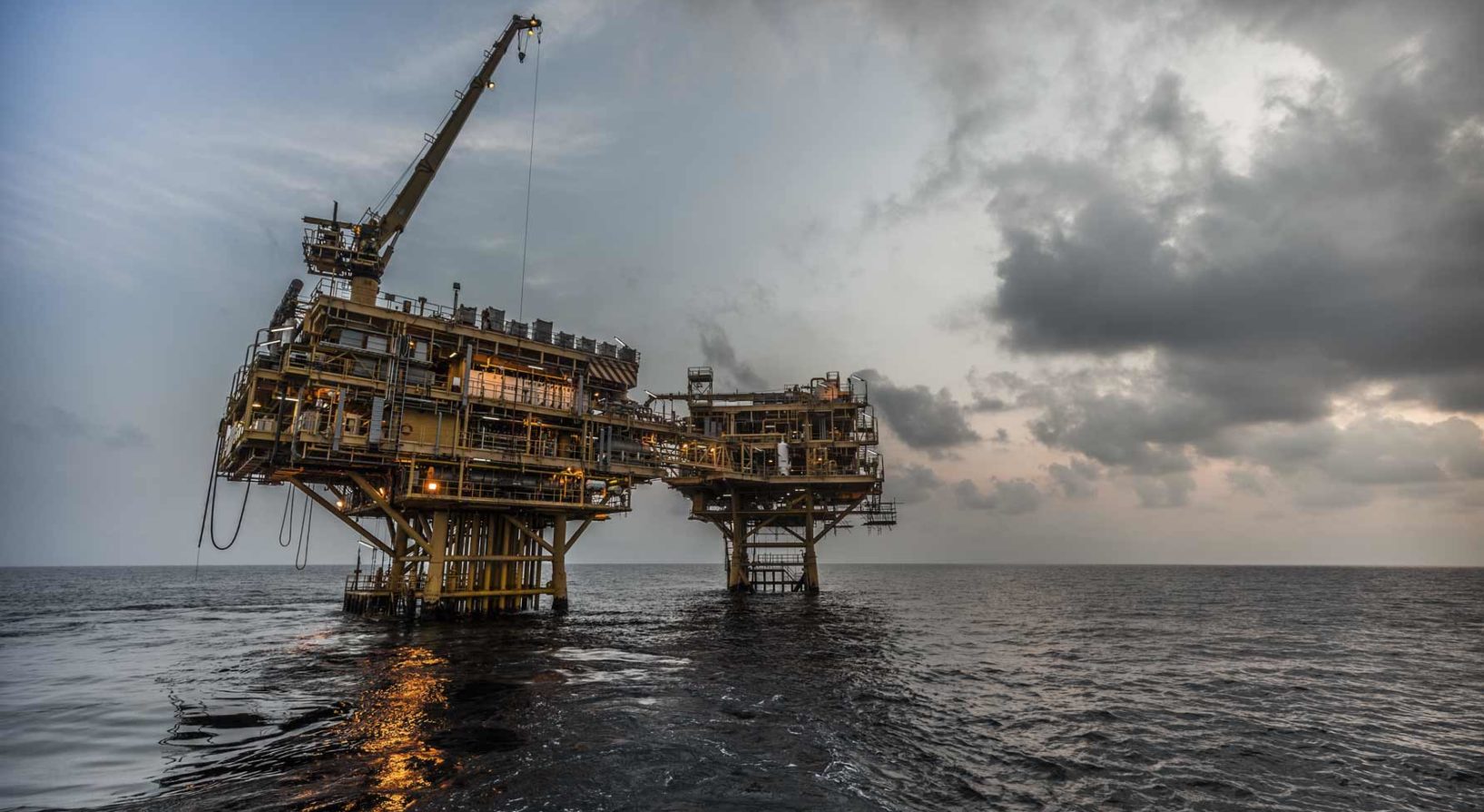
With the increased amount of drilling and the remote location, oil production is incredibly dangerous in the GoT. Mubadala Petroleum have an exemplary safety record and promote a safety culture. We followed Tom, the HSSE manager for the company, as he visited the field and explained why the safety of his employees is so important to him, and by extension, MP.
Finally we focused on a CSR story, visiting professor Apple in her lab in the Sattahip district in Thailand. Funded by Mubadala Petroleum Apple has devoted her life to saving the coral reef in the Gulf of Thailand and is trying to pass her findings on to the global conservation community.
Behind the scenes
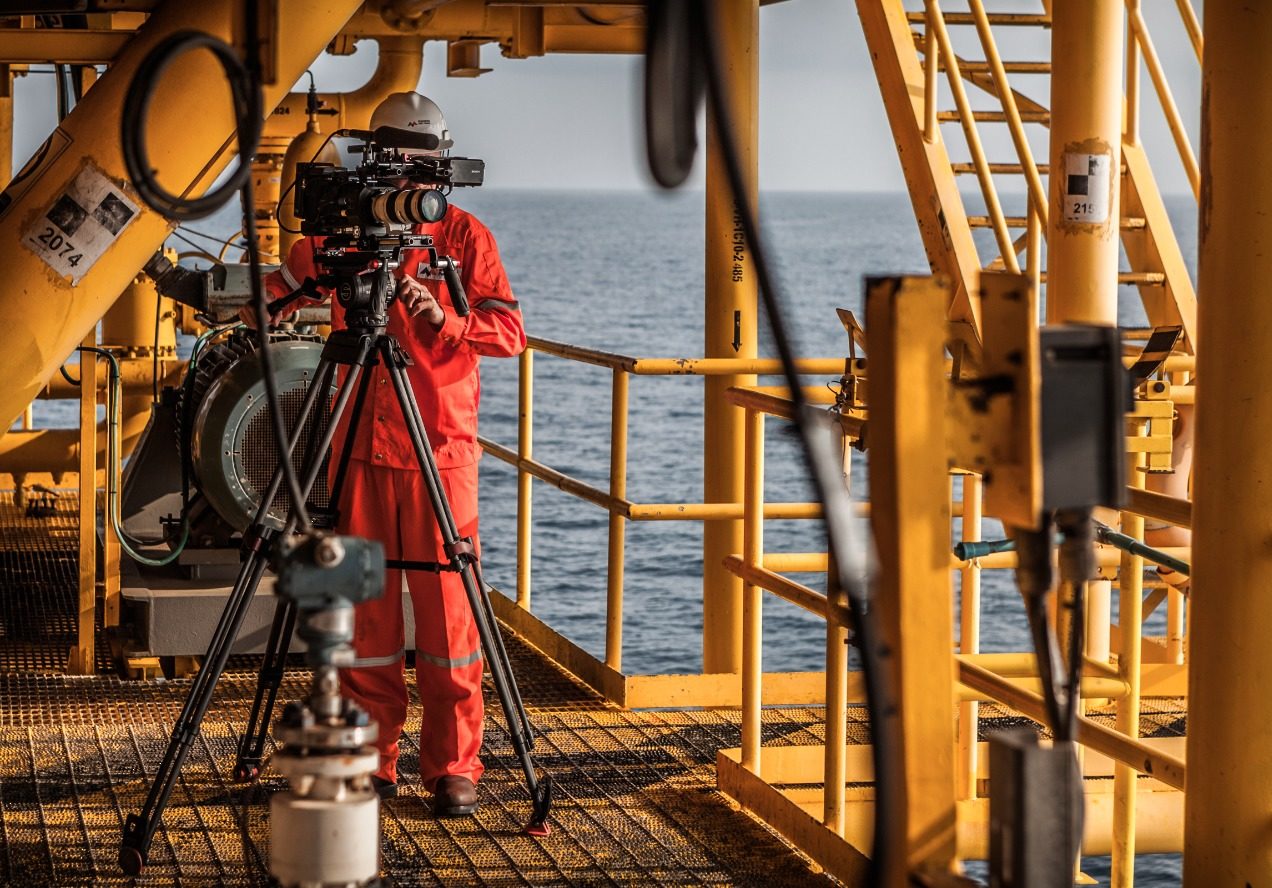
Challenges
Filming took place in a number of locations including the Mubadala Petroleum Head Office in Bangkok, various oil platforms and an FPSO (Floating Production, Storage and Offloading) facility in the Jasmine Oil Field, as well as a Thai national park where MP have been financing a decade long project looking at protecting and revitalising coral reefs.
Filming in Thailand, and obtaining the correct VISAs and permissions, is a very complicated process, but having done so many times before we were able to call on our trusted local fixer to deal directly with the Thai filming office. This cleared our crew and enabled us to bring all our own kit for use in Thailand. We had to pass inspections from film officers when filming on the ground in Bangkok and import and export all equipment using a Carnet.
The biggest challenge was filming in the Oil Field. Our crew underwent Helicopter Underwater Escape Training (HUET) in order to reach the FPSO. And with a very short lead-up time to filming the training was done in Thailand just one day before our flights to the Oil Field.
In this case the aerial photography was completed by removing the doors of the helicopter and using special harnesses, arrest cables and stabilised lenses.
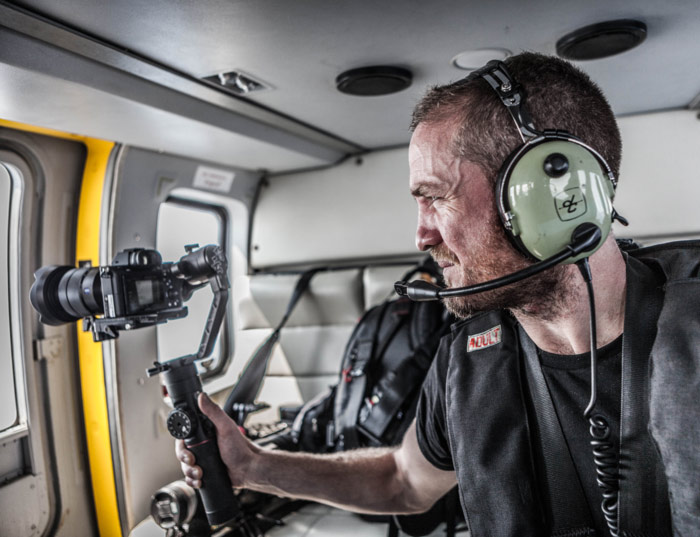
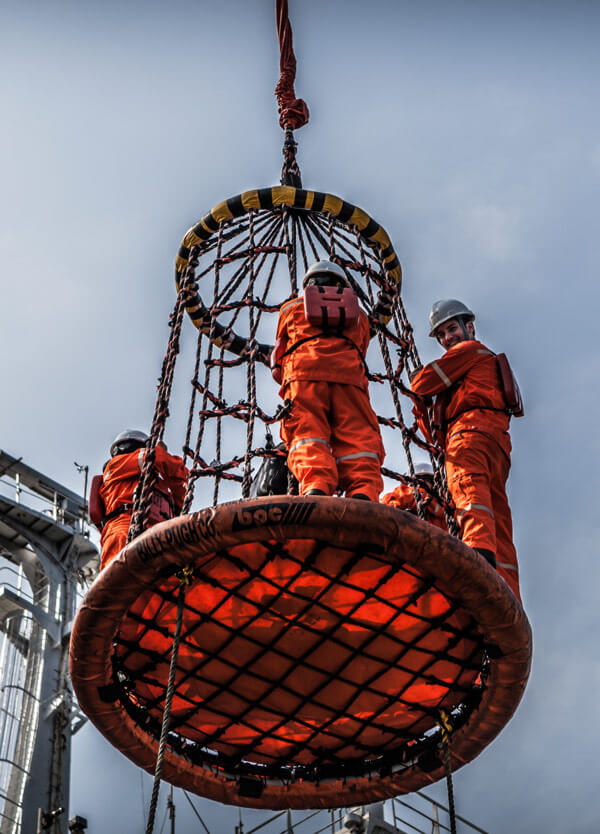
Filming on an oil platform is a hugely hazardous environment and requires a disciplined approach to Health and Safety. We completed all the relevant briefings had an HSSE chaperone at all times meaning that in consultation with him we could conduct in-situ risk assessments when new filming challenges arose.
Transferring to vessels meant using a billy pugh, while sleeping on the FPSO meant quickly familiarising ourselves with the geography of the vessel as well as an understanding of fire safety and evacuation procedures.
Numerous locations across a large country made this 12 day shoot a complex logistical challenge involving six hotels (plus one FPSO), two helicopters, one commercial airline, taxis, hire cars, passenger ferries even one Thai Navy speedboat.
